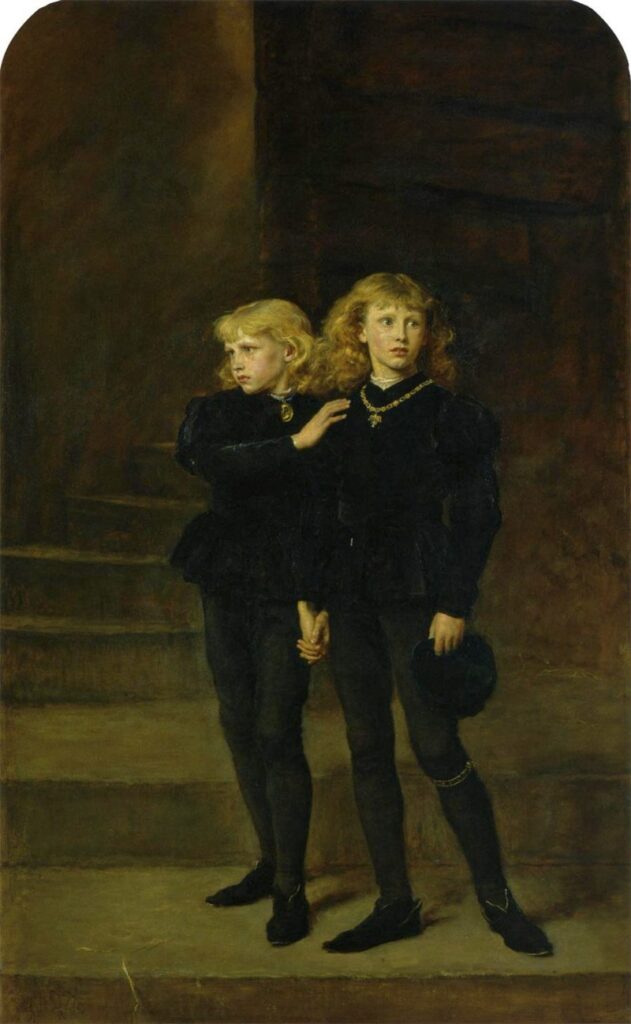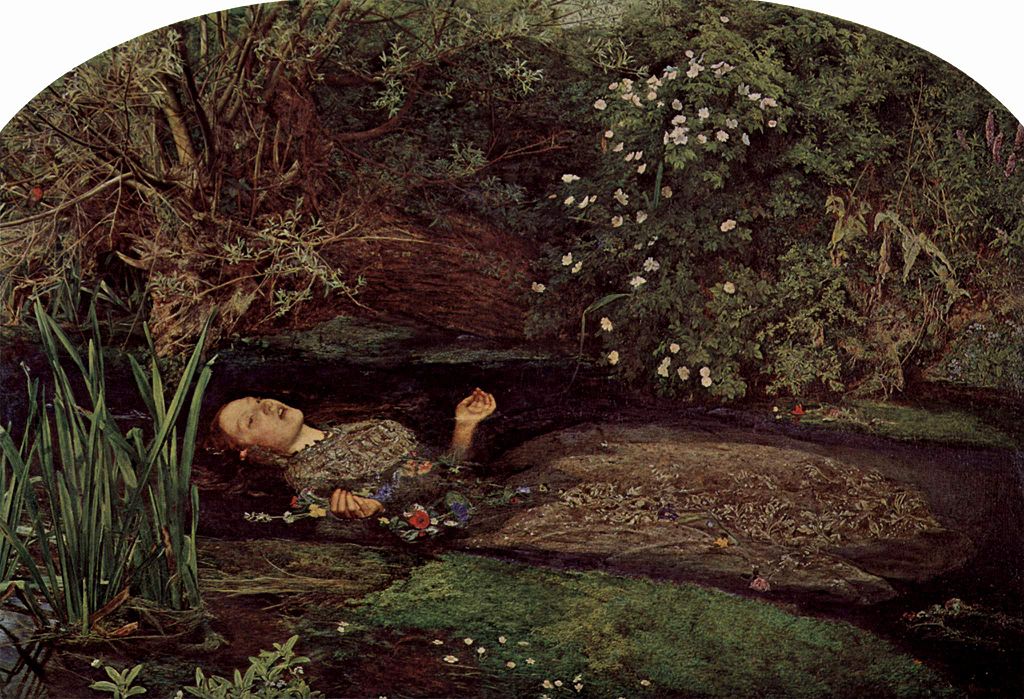Shakespeare's "Richard III" Synopsis and Comments - A terrifying evil charisma and the wheel of fate. A masterpiece of early historical drama!
I would like to introduce "Richard III" written by Shakespeare around 1592-93. I read the Shinchosha edition, translated by Tsunen Fukuda.
Let's take a quick look at the book.
When his brother King Edward IV fell ill, Richard of Gloucester, an ambitious and physically disabled man, set his sights on the throne, and with his lucid intelligence and cool-headed logic, hatched one brutal plot after another and finally ascended to the throne. This is a masterpiece of historical drama in which Shakespeare, the poet of drama, pounces headlong on the horrifying depths of human nature, which have opened their mouths.
AmazonProducts Page.
The "Richard III" we present here was introduced in our previous article.Henry VI.This is the very sequel to the
Richard, Duke of Gloucester had already shown glimpses of his villainous nature in the previous film, "Henry VI," and in this film he displays his evil charisma without regret.
As I mentioned in my previous article, "Henry VI" also served as a prologue to this "Richard III". It makes us, the readers and spectators, eager to see the rest of the story. It is as if we are already being rolled in the palm of Shakespeare's hand.
And if you keep that momentum going, you will have a great time reading this work. I recommend reading "Henry VI" first as a prelude to reading "Richard III".
And what's more, before reading these two works, you should read the book by Shohei TouyamaThe War of the Roses.It is also highly recommended that you read
Henry VI and Richard III are set in the Wars of the Roses, a civil war that divided England in the 15th century. This civil war is so complicated that you cannot enjoy Shakespeare's plays unless you have even a rough idea of how it went down. After all, there are many characters and, moreover, you have to know who is in which camp.
But if you know the process, even roughly, these plays become a lot more interesting. Just as we enjoy watching the stories of Nobunaga, Hideyoshi, Ieyasu, and others of the Warring States period, the audiences of that time also enjoyed these stories.
Richard III" is a masterpiece of Shakespeare, who made his debut as a playwright with "Henry VI. The translator's commentary on the popularity of "Richard III" was as follows.
Richard III" is a history play written in the very early stages of Shakespeare's career, but since its premiere, it has rivalled his later tragedies in terms of the number of times it has been performed and its popularity with audiences. Not only was it a success on the stage, but it has also attracted a large number of readers for the charm of its lively and fluid, if somewhat laconic, dialogue, and has already been reprinted six times in four folded editions during the author's lifetime.
Shinchosha, Shakespeare, translated by Tsunen Fukuda, Richard III, p. 211
The "charm of the dialogue, which is so lively and fluid that it could be described as somewhat laconic," is certainly powerful in the dialogue of this work.
When Richard is trying to trap and kill his brother Clerance,
Now, take the journey that will never return, good-natured old Clerance, I love you, so I'll send you back to heaven right away, if only you'll accept it in heaven.
Shinchosha, Shakespeare, translated by Tsunen Fukuda, Richard III, p. 17
What a scoundrel! What a scoundrel he is! He has no hesitation in killing his own people through intrigue. But I still can't get enough of the witty way he says it. I know he is the worst kind of villain. But for some reason, we readers can't help but hate him.
And Richard kills one enemy after another, and is covered in blood.
However, in the latter half of the book, he also says something like this, as if he has some thoughts about his own future.
How far can I go? But now that I have stepped so far into the flow of blood, all that remains is to let sin call for sin, and no frail tears will be in my eyes.
Shinchosha, Shakespeare, translated by Tsunen Fukuda, Richard III, p146
This line sounds like a reopening, but to me it seems to be an important line that hints at his later fate.
And finally, my own mother even said this to me.
You're still cursed.wombI wish I had strangled him while he was still in the "I", so that I could have interfered with the atrocious murders he committed with his own hands!
Shinchosha, Shakespeare, translated by Tsunen Fukuda, Richard III, p. 161
It is indeed a pity that Richard has to be told so much by his own mother, but that is how much Richard has done repeatedly.
It is true that Richard's evil deeds are horrendous. But when you read this historical drama, there is still a strange fascination, or rather a magical power, that makes you see him as the "charisma of evil".
The translator explains this as follows. It is a bit long, but it points out a very important point for enjoying this work, so I will read it carefully.
The work is consistent with a great flow of fate that transcends individual will, and the characters who think they alone are immune from it fall into its trap one after another, and the words they inadvertently leak out of their consciousness invariably come crashing down on them. And Richard, who thinks more than anyone else that he alone has escaped the hand of fate, that he alone is in control of people's destinies, that he alone is free to control his own destiny, finally and most perfectly proves the existence of fate through his own downfall. It could even be said that this play was written to express such tragic irony itself. In this respect, it is very logical and at the same time satisfies the ethical and psychological needs of the reader or spectator.
Moreover, it should not be overlooked that the appeal of Richard's peculiar character has given this work a timeless popularity. First, Richard is a Machiavellian, a conniving Machiavellian, and physically he is a hunchback with an ugly figure. Modern psychologism might ask how other characters could so easily fall for his blatant hypocrisy and lies. But if one thinks so, it is either because the reader has failed to read the work, or because the actor has failed to play the part of Richard.
Of course, although somewhat forced, Shakespeare is not ignorant of the realities of human psychology. If we scrutinize Shakespeare's plays with the suspicious eye of modern psychologism, they all become unnatural. Not only that, but the whole play becomes a fabrication, and every character's act seems foolish. In the real world, however, deceptions that seem so absurd are easily pulled off. What may seem absurd in a newspaper article may not be so easy to pull off for the people involved. The difference between the parties involved and the third party is that the third party, unlike the parties involved, does not see the person who is deceiving them in front of them. In other words, they do not directly feel the power of the person's character at work.
The actor who plays Richard must express his power between lines of dialogue. Shakespeare is prepared to do just that. We must not miss as a secondary attraction to Richard's character the bright conscious person who plays with jokes and sarcasm. That is not to say that those around him are fooled by his charm. Rather, it is the opposite. Richard is aware of his evil and at the same time does not dare to hide it from the rest of us. He is not a dullard, a so-called hypocrite. He is not as insensitive as the so-called hypocrites; he may be hypocritical as a means to an end, but even when he is, his fine nerves do not try to hide his hypocrisy from others. At the very least, he is a cynic who cannot help but show himself clearly aware of it. In other words, his hypocrisy is equal to his hypocrisy.
Shinchosha, Shakespeare, translated by Tsunen Fukuda, Richard III, p222-224
Richard is indeed a bad guy. But he has lived with a strong sense of inferiority and physical inferiority since he was a child. Moreover, his older brother is the king. And his own appearance was unbearable for Richard.
Richard wanted the "power" to turn everything upside down. He wanted to seize it all, using all his wiles, his wiles, and his strong spirit of fearlessness. He did not desire evil, nor did he love to do evil. He did what he had to do to get the crown, to get the "power. Of course, his cruelty and inhumanity to others cannot be denied, but "Richard III" is the story of a man who suffered, struggled to gain power, and challenged his destiny. And in the end, he himself was destroyed by the hand of fate, as explained above.
It is precisely because of this tale of doom and destruction that we see charisma in Richard the Big Bad. There is more to this man than just being a villain.
Finally, I would like to end this article by introducing a famous painting related to this work. I am sure you have seen this picture before.

Painted in 1878 by the English Pre-Raphaelite painter Millet, they became the sons of the former King Edward IV, who was supposedly killed by this Richard III.
Richard III eradicated his brother's sons in order to become king himself. It was in the Tower of London that his sons were imprisoned and killed. The above painting was written on the theme of the Tower of London, and is said to have been greatly influenced by Shakespeare's works.

Speaking of Millet and Shakespeare, these works are famous.Hamlet."The film depicts the scene where Ophelia, the heroine of the
Thus, Shakespeare continues to be a huge inspiration for works of art. Richard III" is another masterpiece filled with dramatic scenes and powerful words. It is hard to believe that this is an early work.
I highly recommend that you continue reading "The War of the Roses", "Henry VI", and "Richard III" by Shohei Touyama.
The above is a synopsis of Shakespeare's "Richard III": a terrifying evil charisma and the Wheel of Fortune. A masterpiece of early historical drama!" The above is a summary of Shakespeare's "Richard III" and my impression of it.
Next Article.
Click here to read the previous article.
Related Articles







































